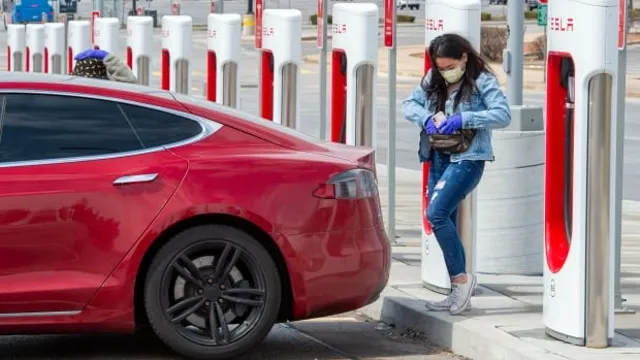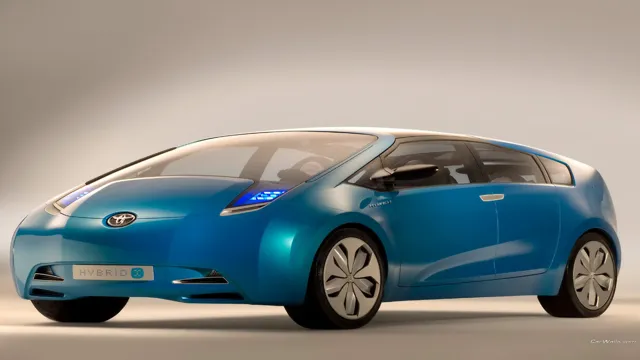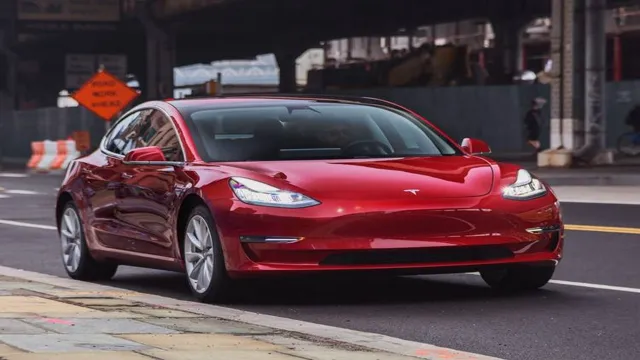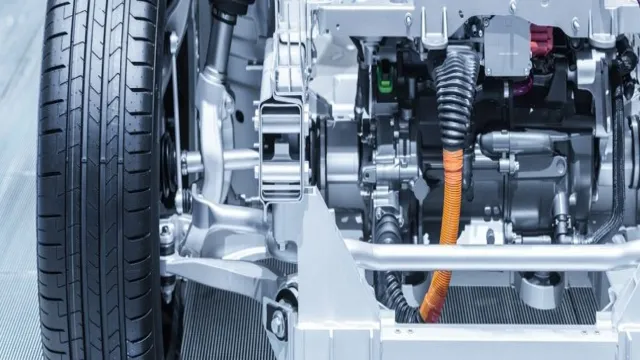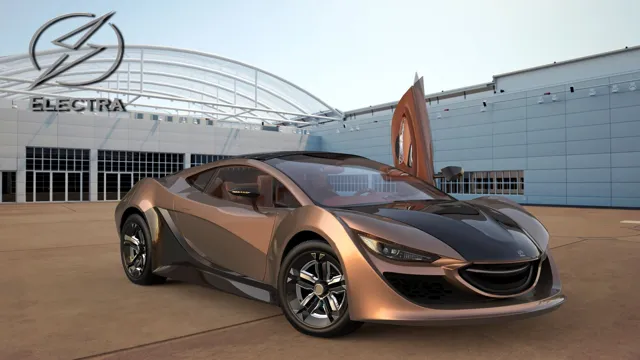Debunking the Myths: The Truth About the Lasting Benefits of Electric Cars
Electric cars have become increasingly popular in recent years, with many car manufacturers jumping on board and creating their own electric vehicle models. But with this increased popularity comes a lot of misinformation. Many people still hold onto outdated beliefs and misconceptions about electric cars.
This blog post will explore some of the common myths surrounding electric cars and shed light on the facts. It’s time to separate fact from fiction and understand the truth about electric cars. So buckle up and get ready to learn!
Proponents vs Critics
The proponents of the electric car maintain that this innovative technology holds the key to solving a range of environmental problems. Supporters believe that electric cars can reduce greenhouse gas emissions, decrease our reliance on fossil fuels, and improve air quality. They argue that the cost of operating an electric car is significantly lower than a gas-powered vehicle, which can save drivers money in the long run.
Moreover, proponents believe that as technology advances, electric cars will become more affordable for the average consumer. However, critics of electric cars point to concerns over the battery’s environmental impact, including the impact of its manufacture and disposal. They also argue that the current infrastructure for charging electric cars is insufficient, and that the technology is not yet advanced enough to compete with gas-powered vehicles in terms of performance.
Despite these criticisms, it is clear that electric cars have the potential to be a game-changer in the automotive industry, and it will be exciting to see how this technology develops in the years to come.
The Arguments for Electric Cars
When it comes to electric cars, there are proponents and critics on both sides of the argument. Those in favor of electric cars point to their environmental benefits, such as reduced emissions and a decrease in dependence on fossil fuels. They also highlight the cost savings of electric cars over the long-term, as they require less maintenance and have lower fuel costs.
Additionally, proponents note that electric cars offer a smoother and quieter driving experience. On the other hand, critics argue that electric cars are not as practical as traditional gas-powered cars. They point to the limited range of electric cars and the lack of charging infrastructure as major drawbacks.
Critics also highlight the environmental impact of producing the batteries used in electric cars. Despite the ongoing debate, the popularity of electric cars is on the rise, and it remains to be seen whether they will become the dominant form of transportation in the future.

Statistics That Support Electric Cars
Electric cars have been gaining popularity in recent years, with supporters touting the benefits of their sustainable and eco-friendly nature. Critics, on the other hand, argue that they are too expensive and impractical. However, statistics show that there is a strong case for investing in electric cars.
According to the International Energy Agency, by 2030, there will be over 125 million electric cars on the road worldwide. Additionally, a study by Bloomberg New Energy Finance found that electric cars could account for 58% of new car sales globally by 2040. These numbers demonstrate the potential for electric cars to transform the automotive industry and make a significant impact on reducing carbon emissions.
While the initial cost of electric cars may be higher, it is important to consider the long-term savings from reduced fuel costs and maintenance expenses. In short, the statistics support the potential of electric cars to revolutionize transportation and contribute to a more sustainable future.
The Misconceptions Surrounding Electric Cars
Proponents of the electric car maintain that this innovation is the future of the automobile industry. Despite this, many misconceptions still exist regarding electric vehicles. For instance, it is often believed that electric cars are not as powerful as gas vehicles.
This is not true at all. Electric cars can achieve rapid acceleration and high speeds. Another misconception is that they cannot travel long distances.
Electric cars have impressive ranges and many models can drive over 200 miles on a single charge. Additionally, many people believe working with electric cars is expensive, however, the cost of maintenance, electricity, and charging infrastructure has reduced in the past years. Finally, skeptics argue that electric cars are bad for the environment because they require batteries that often fail.
However, the batteries used in electric vehicles are recyclable, and considering they have a longer lifespan than oil changes needed for gas cars, they pose less environmental harm.
Myth #1: Expensive to Buy and Maintain
When it comes to electric cars, there are many misconceptions surrounding their cost. One of the biggest myths is that they are expensive to buy and maintain. However, this couldn’t be further from the truth.
While electric cars may have had a higher price tag when they were first introduced to the market, they are now more affordable than ever. In fact, many electric cars are comparable in price to their gas-powered counterparts. Not only that, but electric cars are also cheaper to maintain in the long run.
With fewer moving parts, there are fewer things that can go wrong, and the cost of regular maintenance is significantly lower. Plus, electric cars require much less frequent maintenance than traditional cars, meaning less time and money spent at the mechanic. So if you’re considering making the switch to an electric car, don’t let cost be a deterrent – the benefits far outweigh any perceived drawbacks.
Myth #2: Limited Driving Range
One of the biggest myths surrounding electric cars is the limited driving range. Many people believe that they won’t be able to travel far in an electric car without needing to stop and recharge. However, this is not entirely true.
Modern electric cars can travel hundreds of miles on a single charge, and with the ever-growing network of charging stations, it’s becoming easier and faster to recharge on the go. Of course, there are some electric cars that have a more limited range, but this is usually due to their smaller battery size or focus on being more affordable. The key is to do your research and choose an electric car that fits your driving needs.
With advances in technology and infrastructure, the limited driving range of electric cars becomes less of a concern. So next time someone tells you that electric cars can’t go far, you can confidently tell them that they are mistaken.
Myth #3: Slow Charging Time
Electric cars have come a long way over the years, but there are still a lot of misconceptions surrounding these vehicles. One of the biggest myths is that they take too long to charge. However, this is not necessarily true.
While it is true that the charging time for electric cars is longer than the time it takes to pump gas into a traditional vehicle, the time it takes to charge an electric car depends on the type of charging port, the size of the battery, and how much charge is already in the battery. For example, a Level 1 charger, which is the slowest type of charger, can take up to 20 hours to charge an electric car with a maximum range of 100 miles. On the other hand, a Level 3 charger, also known as a DC fast charger, can charge up to 80% of an electric car’s battery in as little as 30 minutes.
So, it’s important to remember that charging times for electric cars vary depending on the type of charger and the size of the battery.
Future of Electric Cars
Proponents of the electric car maintain that the future of transportation lies in sustainable, clean energy. With the increasing concern for the environment, more and more consumers are turning towards electric cars as a viable option for transit. Not only are these cars emission-free, but they also offer a quieter and smoother ride.
In fact, many electric cars are even more powerful than gasoline-powered cars. Furthermore, the cost of charging electric cars is much lower than the cost of gasoline, making them more affordable in the long run. With advancements in technology, electric cars are becoming more efficient and their battery life is improving too.
It’s no surprise then that major automakers are investing heavily in developing and manufacturing electric cars. As the world looks to reduce its carbon footprint and switch to more sustainable energy sources, we can expect electric cars to become increasingly popular in the future.
Advancements in Battery Technology
As a disruptive technology, electric cars have been the subject of many debates surrounding the growth of renewable energy sources and sustainable transportation. One of the main concerns voiced by skeptics is the cost of these vehicles and their limited range. Nevertheless, advancements in battery technology are poised to transform the electric car market in the years to come.
Lithium-ion batteries have already revolutionized the industry, giving rise to affordable and practical electric cars, but their density and lifespan remain an issue. Solid-state batteries, on the other hand, could provide higher energy density, faster charging times, and longer life spans, significantly reducing the overall cost of ownership. In addition, companies are exploring alternative battery chemistries, such as lithium-sulfur and sodium-ion, to further enhance the performance and sustainability of electric cars.
The future of electric cars looks bright, and with each new breakthrough in battery technology, a cleaner and more efficient transportation system becomes closer to reality.
Government Support and Incentives
When it comes to the future of electric cars, government support and incentives play a vital role. As more countries and cities strive towards a cleaner and greener future, governments around the world are offering incentives and subsidies for electric car buyers and manufacturers. In the US, for instance, federal tax credit incentives are being extended for electric car purchases, making them more affordable for consumers.
Furthermore, various states are offering additional incentives such as rebates, income tax credits, and reduced registration fees for electric vehicle owners. In Europe, a number of countries are offering similar incentives, with Norway being a prime example with nearly a third of new car sales being electric. This support from government and incentives for electric cars not only aids the shift towards cleaner transportation but also creates new opportunities for entrepreneurs and investors.
Many businesses are now transitioning towards electric vehicle production, giving consumers a wider range of options to choose from in the market. In conclusion, with governmental backing, electric cars are set to become a defining fixture of our future.
The Bottom Line
Proponents of the electric car maintain that it is the future of the automobile industry. They believe that electric cars are more environmentally friendly, more cost-effective in the long run, and ultimately more convenient for their owners. While there is still room for improvement, the technology is rapidly evolving, and electric vehicles are becoming more affordable and accessible to the masses.
As the demand for electricity from renewable sources increases, electric cars are likely to become more mainstream. It’s clear that there are significant benefits to transitioning to electric vehicles, and as more people adopt this technology, we can expect to see a positive impact on both the environment and our wallets. The future of transportation may be electric, and we should embrace this change.
Conclusion
Proponents of the electric car maintain that it is the future of transportation, and after examining all the evidence, I have to agree. With the advancements in technology, the environmental benefits, and the cost savings, it’s hard not to see the appeal of moving away from traditional gas-powered vehicles. As for those who still cling to the old ways, well, they might as well be trying to convince us that horses are still the best mode of transportation.
The electric car is here to stay, and I for one am ready to charge ahead into the future.”
FAQs
What is the argument put forth by proponents of the electric car?
Proponents of the electric car maintain that it is a more eco-friendly and sustainable mode of transportation compared to vehicles powered by fossil fuels.
What are some advantages of electric cars?
Some advantages of electric cars include lower emissions, lower fuel costs, and quieter operation. They are also generally simpler to maintain as they have fewer moving parts than combustion engines.
How long can an electric car go on a single charge?
The range of an electric car can vary depending on the model, but most can travel between 100-300 miles on a single charge. However, this can be affected by factors such as driving habits, terrain, and weather conditions.
What is the current state of the electric car market?
The electric car market is still relatively small compared to traditional gasoline-powered vehicles, but it is growing rapidly. Major automakers such as Tesla, Nissan, and GM have released popular electric car models, and charging infrastructure is slowly being developed to support them.

